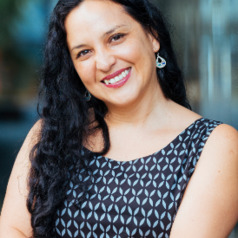
Angela Baeza Pena
Lecturer at Carumba Institute, Queensland University of Technology
Dr Angela Baeza Peña is Diaguita First Nation from the north of Chile. She is Lecturer at the Carumba Institute at Queensland University of Technology. Angela is a Math teacher and has a Master in Education from Monash University and a Master in Learning Disabilities from PUC. Her research theorises the understanding of teachers' experiences and Indigenous community members regarding providing Indigenous education in rural and remote areas. Angela’s research interests include Indigenous education, teacher professional development and higher education with Indigenous peoples. Her publications include several books and journal articles in English and Spanish.
Less ![]()
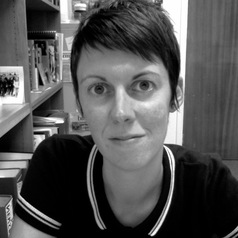
Angela Bartie
Senior Lecturer in History, University of Strathclyde
Angela Bartie is an historian of the post-1945 era. Her research interests cover social and cultural change in the second half of the twentieth century, with specific interests in the role of the arts in society, cultural policy, and arts festivals alongside ongoing interests relating to youth gangs, violence, media representations of young people, and official responses to delinquency.
Bartie is the author of The Edinburgh Festivals: Culture and Society in Post-war Britain and, with Eleanor Bell, editor of The International Writers' Conference Revisited: Edinburgh, 1962. She is currently working on a major collaborative project on the history of historical pageants in Britain (1905-2016) as well as continuing to research the Glasgow arts festivals, Clyde Fair International and Mayfest. Bartie has also worked and published on aspects of youth gangs, violence, media representations of young people, and official responses to delinquency, most recently as PI on a British Academy Small Grant funded project on oral histories of youth gangs in Easterhouse, c. 1965-1975, in conjunction with Alistair Fraser, University of Hong Kong (2011).
Bartie initially joined the Scottish Oral History Centre as a Research Fellow in November 2006 and, since then, has been involved in writing funding bids (including the successful AHRC Knowledge Transfer Fellowship, The Voice in the Museum), developing and teaching SOHC oral history training seminars, providing advice and guidance to academics, museums, archives & libraries staff, community and heritage groups and the general public, and the day-to-day running and strategic direction of the Centre. Between 2006 and 2009, she also worked in research posts at the Universities of Strathclyde, Glasgow Caledonian and Edinburgh.
Less ![]()
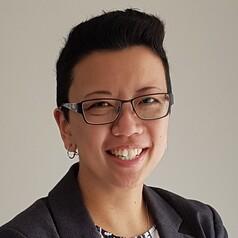
Angela Cruz
Senior Lecturer in Marketing, Monash University
I'm a Senior Lecturer in Marketing at Monash University and hold a PhD in Marketing from The University of Auckland.
My research focuses on how people and companies navigate the boundaries of culture, gender, and class in globalising and digitalising cultures of consumption. Under this broad theme, my research spans varied contexts. For example, a recent study published in Journal of Consumer Research examines how international K-pop fans manage the tension between cultural appreciation and cultural appropriation. In another project, published in Journal of Business Research, I map key approaches that firms use to craft food products for culturally diverse markets. Finally, in another study that was just published in International Marketing Review, I analyse how unconventional luxury collaborations help brands adapt to changing tastes among young Chinese consumers. I draw on cross-disciplinary, critical, and poststructuralist modes of theorising and use a range of qualitative methodologies.
Less ![]()
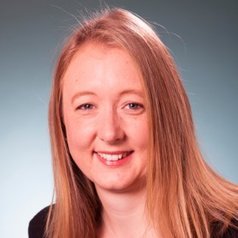
Angela Curl
Senior lecturer, Department of Population Health, University of Otago
Angela is a social scientist interested in the relationships between urban environments, transport and health. She is particularly interested in how public policies, particularly in transport, urban planning and housing, can address health inequalities and transport disadvantage.
Angela undertakes research exploring perceptions and experiences of accessibility and how these interact with the built environment to influence outcomes, such as travel behaviour, transport disadvantage, physical activity, health and wellbeing, for different population groups. Her research focuses particularly the experiences of older adults and lower income groups.
Angela uses both quantitative and qualitative social research methodologies and is particularly interested in novel methodological approaches, including those that utilise GIS.
She is a member of Living Streets Aotearoa, Public Health Association of New Zealand, Engineering NZ Transportation Group and the New Zealand Geographical Society. She is a Fellow of the Royal Geographical Society with Association of British Geographers and a Fellow of the Higher Education Academy (UK).
Less ![]()
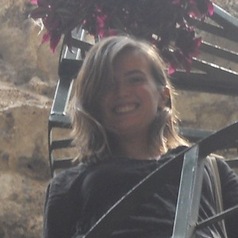
Angela Daly
Dr Angela Daly recently joined QUT Law as Vice Chancellor’s Research Fellow. She is a socio-legal scholar of technology with expertise in intellectual property, human rights (privacy and free expression), and competition and regulation. She is also the author of ‘Socio-Legal Aspects of the 3D Printing Revolution’ (2016, Palgrave), based on her postdoctoral research at the Swinburne Institute for Social Research and ‘Private Power, Online Information Flows and EU Law’ (2017, Hart), based on her doctoral research at the European University Institute.
Less ![]()
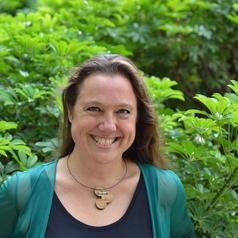
Angela Dean
Lecturer, School of Agriculture and Food Science & Centre for Biodiversity and Conservation Science, The University of Queensland
Less ![]()

Angela Dwyer
Associate Professor, University of Tasmania
Dr Angela Dwyer is an Associate Professor in Police Studies and Emergency Management at the School of Social Sciences and Deputy Director of the Tasmanian Institute of Law Enforcement Studies (TILES). Her research on how sexuality, gender, and sex diversity influences policing contributed to founding the niche discipline area of queer criminology, and she is founding co-chair of the Division of Queer Criminology for the American Society of Criminology. She coordinates a Professional Honours program linked with the promotional pathways of Victorian and Tasmanian police officers and teaches serving police officers skills around leadership and critical incident management to create more critically thinking police leaders, especially around policing vulnerable communities.
Less ![]()

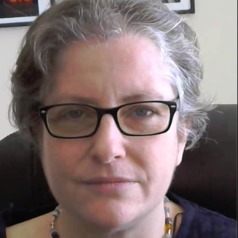
Angela Meadows
Lecturer in Psychology, University of Essex
I have a PhD in Psychology from the University of Birmingham, UK. My research is focused on weight stigma, health, and wellbeing. I am currently a Lecturer in Psychology at the University of Essex in the UK. In 2018/2019, I was an ESRC postdoctoral fellow in Psychology at the University of Exeter, UK, andan SSHRC Banting Fellow in Psychology at Western University, Canada from 2019 to 2021. In 2013, I founded the Annual International Weight Stigma Conference to bring together researchers and practitioners from a range of health, social science, and policy backgrounds. www.stigmaconference.com
Less ![]()
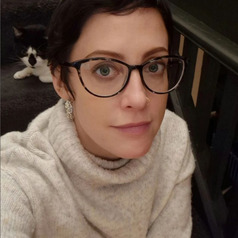
Angela Muir
Lecturer in British Social and Cultural History and Director of the Centre of Regional and Local History, University of Leicester
I am a British Social and Cultural Historian whose work focuses on Wales and England during the long eighteenth-century (roughly 1680-1830). I specialise in the history of gender, crime, sexuality and the body, and I am particularly interested in non-elite lives and experiences. I have published on the history of illegitimacy, childbirth, and mortality, and I have given public lectures on crime and deviance in Wales. My book Deviant Maternity: Illegitimacy in Wales, c. 1680-1800 was published in 2020 by Routledge.
Less ![]()
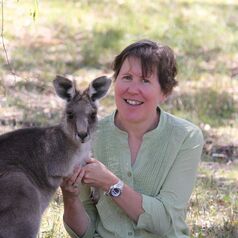
Angela Russell
Graduate researcher PhD candidate, La Trobe University
After retiring from Victoria Ambulance Service after being diagnosed with Early Onset Parkinson's Disease, I enrolled in a Bachelor of Biology at Latrobe University as a mature-age student. On completion of my degree, I began an Honours year looking at Roadkill Patterns in Melbourne's outer suburbs. After a five year break, I have returned to Latrobe to research Marsupial Microbiomes as a graduate researcher and PhD candidate. I hope the information gathered will assist wildlife carers in their important and difficult job of rearing and releasing orphaned and injured wildlife.
Less ![]()
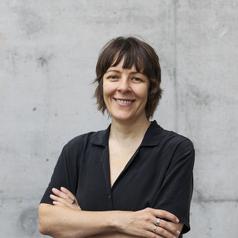
Angela Smith
Postdoctoral Research Fellow, Western Sydney University
Dr. Angela Smith is an interdisciplinary social researcher with expertise in political and human geography, focusing on the relationship between people, place and movement. She brings over a decade of experience as a practitioner working with diverse communities and international organisations. Angela offers a nuanced understanding of migration and belonging, informed by both local realities and global geopolitical dynamics. Her research skills include qualitative and quantitative methods, monitoring and evaluation, research design and research project management. Her research interests include themes of human mobility, colonial histories, and border dynamics, bringing a critical perspective to contemporary global challenges.
Less ![]()
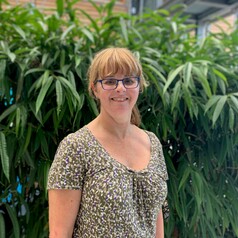
Angela Thornton
PhD Candidate, University of Nottingham
For my PhD thesis I have been exploring public awareness and attitudes to mind uploading. Up until 2018 I was an industry market researcher specialising in healthcare although I also have business to business and consumer experience. I have over 30 years’ experience and have held senior roles at several agencies including Ipsos MORI and Research International (South Africa) where I was the Qualitative Director on the Unilever account. In 2014 I set up my own consultancy ACT Research Ltd and this gave me the opportunity to fulfil a long-held ambition to gain a post graduate qualification as a mature student. I achieved a Distinction in my MSc from the University of Nottingham and was subsequently accepted onto the Horizon Centre’s Doctoral Training Programme which focuses on the digital economy and digital innovation. As a commercial researcher I gave many presentations to senior audiences and co-authored a Health Economics paper. I am a Certified Member of the Market Research Society and have previously held positions on the Board of The British Healthcare Business Intelligence Association where I also served on the Ethics and Compliance Committee. As an early career researcher I am working on publications for academic journals and conferences. I have given a Public Science Lecture at the university and am keen to share my work more widely.
Less ![]()

Angela Tod
Professor of Older People and Care, University of Sheffield
I am currently Professor of Older People and Care in the School of Nursing and Midwifery at the University of Sheffield. Prior to this post I have had many years of experience conducting and applying research into healthcare. I have extensive academic, research, managerial and strategic experience gained from within both healthcare and University sectors. My academic background is in qualitative research in stand alone or mixed methods studies. I have an interest in accessing health care, public health and health inequalities, and patient experience research.
I am the Co-director of the Mesothelioma UK Research Center at the University of Sheffield.
My clinical background is nursing and I have an interest in evidencing the value of nursing practice, as well as the impact of nursing on patients and wider society. I have a proven track record of delivering academic results including obtaining funding for, delivering, disseminating and applying a mixed portfolio of creative and high quality research of an International standard.
I have a legacy of research capacity building, working in and across settings and I am committed to developing evidence based healthcare practice.
Less ![]()
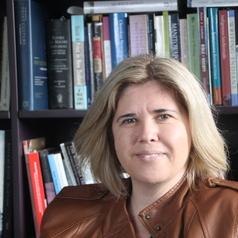
Angela Wanhalla
Professor of History, University of Otago
I am a Kāi Tahu historian based in the History Programme at the University of Otago.
Less ![]()
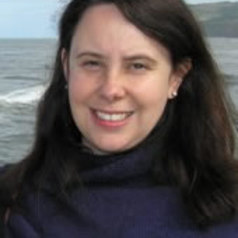
Angela Wright
Professor of Romantic Literature, University of Sheffield
My interests lie in literature published between the 1760s and 1820s, and my publications have come broadly from the interactions between the Gothic and Romantic modes during these decades, both in Britain and in France. In 2013, for example, I published Britain, France and the Gothic: The Import of Terror with Cambridge University Press, and there I investigated the roles played by translation, adaptation and silent plagiarism between the Gothic and Romantic modes in Britain and France. The book was shortlisted for the Allan Lloyd Smith memorial prize for Gothic Fiction in 2015, and won an honourable mention.
My new book Mary Shelley explores the continuing fascination with the aesthetics of terror and horror that pervade the works of Mary Shelley from Frankenstein in 1818 to the later novels and short stories that she published in the 1810s, 1820s and even 30s. By demonstrating the shared aesthetics of terror and horror that range across her body of work, I hope that this book will show the agility, discursive breadth and continuing preoccupations that characterise Mary Shelley’s writing throughout her career. The book was published in January 2018, and you can see its cover here. http://www.uwp.co.uk/book/mary-shelley-hardback/
Other publications include the co-edited Romantic Gothic: An Edinburgh Companion (Edinburgh University Press, 2015) and Ann Radcliffe, Romanticism and the Gothic (Cambridge University Press, 2014) (both with Dale Townshend). I am also currently co-editing a three volume Cambridge History of the Gothic with Professors Dale Townshend and Catherine Spooner.
I am also currently writing another monograph, entitled Fostering Romanticism which addresses the wealth and considerable weight of poetry, drama and prose published between the 1760s and 1820s that focusses upon the foster or adoptive parent. This research was funded by means of a Leverhulme fellowship in 2016-17, and should, I hope, be completed by Autumn 2018.
Less ![]()
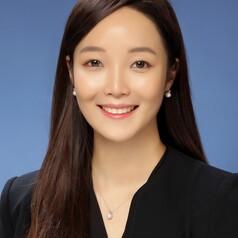
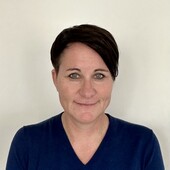
Angela J Clapperton
Senior Research Fellow - Suicide Prevention, The University of Melbourne
Less ![]()
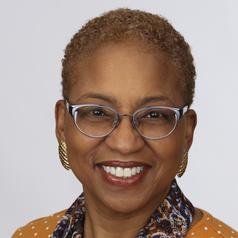
Angela M. Nelson
Associate Professor of Popular Culture, Bowling Green State University
Angela Nelson is an Associate Professor with a core affiliation in Popular Culture within the School of Cultural and Critical Studies at Bowling Green State University and Director of the School. Nelson earned her Ph.D. in American Culture Studies at Bowling Green State University and holds Master of Music and Bachelor of Music degrees. Her interdisciplinary research and teaching specifically centers on 20th- and 21st-century Black popular culture in the United States of America. Dr. Nelson has edited “This Is How We Flow”: Rhythm in Black Cultures (1999), co-edited Popular Culture Theory and Methodology: A Basic Introduction (2006) and published several journal articles and book chapters on African American popular culture. She is also the editor of two special journal issues, including “Religions in African American Popular Culture,” Religions (Summer 2019) and “Black Popular Culture,” Popular Culture Studies Journal and Africology: Journal of Pan African Studies (Fall 2020). Dr. Nelson is currently working on a monograph examining the cultural significance of the American television situation comedy series Good Times.
Less ![]()
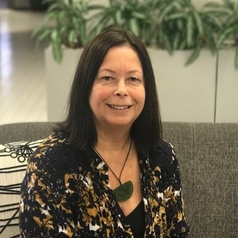
Angela Moewaka Barnes
Research officer, Massey University
Angela (Te Kapotai, Ngāpuhi) is a social scientist, with a focus on theory development including Kaupapa Māori, media, qualitative methods and policy. Her research is grounded in Māori paradigms and draws on a range of indigenous theory and methodologies. As a senior researcher she collaborates with diverse communities, academics and researchers in areas including media representations, te tai ao, Māori identities, youth and social media marketing, and racism.
Less ![]()
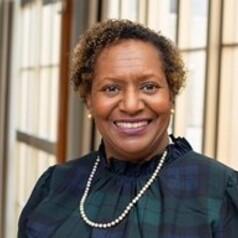
Angela R. Logan
Associate Teaching Professor of Management & Organization, St. Andre Bessette Academic Director of the Master of Nonprofit Administration, University of Notre Dame
Angela R. Logan, Ph.D. is an Associate Teaching Professor and the St. Andre Bessette Academic Director of the Master of Nonprofit Administration in the Mendoza College of Business at the University of Notre Dame. In her role as Academic Director, she provides leadership to the team that oversees both formats of the Master of Nonprofit Administration degree, and as a member of the College’s Department of Management and Organization, she teaches core courses for both programs as well. Professor Logan’s honors and distinctions include the inaugural Notre Dame Faculty Black Excellence Award (2023) and the MNAR Outstanding Professor Award (2023). Prior to joining the College in 2013, Angela has over 25 years of experience in higher education and philanthropy, with a particular focus in the areas of education and diversity.Over the course of her career, she has served as the Program Officer for Education at The Harvest Foundation (Martinsville, VA), the Director of the Bonner Scholars Program at Oberlin College (Oberlin, OH), and the Director of Multicultural Affairs and the Admissions Counselor/Coordinator of Multicultural Admissions at Defiance College (Defiance, OH).
Angela’s research focuses on the intersection of gender, race, faith, and nonprofit and philanthropic leadership. She is the host of "Powerful Conversations," a podcast that explores a new framework of leadership in a series of conversations with Black women leaders. A trained facilitator of Anti-Racism Study Circles, she also provides training on leadership, conflict resolution, stress and time management, and cultural sensitivity, both nationally and internationally, including to the IBM Research Global Internship Program in Beijing, China, and at the Young African Leadership Initiative Regional Leadership Centers in Nairobi, Kenya and Accra, Ghana. She has a movie credit to her name, appearing in the documentary The Business of Good: Young Africa Rising. She currently serves as President of the Nonprofit Academic Centers Council and is a member of the Editorial Board of the Journal of Nonprofit Education and Leadership. In her civic life, she serves as President of the Alumni Board of The Indiana University Lilly Family School of Philanthropy, is a board member of The CASIE Center and CDFI-Friendly, and is a Life Member of Alpha Kappa Alpha Sorority, Incorporated, and is a sustaining member of the Charity League, an affiliate of the Association of Junior Leagues International. She is also an active member of South Bend City Church, serving as the Senior Advisor to the Lead and Executive Pastors, and as Communion Coordinator. She loves good dinner parties, traveling, and football. Angela is the first African American woman to earn a Ph.D. in Philanthropic Studies from the Indiana University Lilly Family School of Philanthropy.
Less ![]()

Angela S. Murolo
Assistant Professor of Criminal Justice and Sociology, St. Francis College
Less ![]()
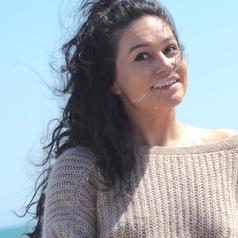
Angelica P. Ahrens
Assistant Research Scientist in Data Science and Microbiology, University of Florida
I am a first-generation Mexican American data scientist and microbiologist at the University of Florida. With a Ph.D. in microbiology, my research focuses on the microbial and molecular factors influencing human development and chronic disease, particularly in pediatrics. I leverage multi-omic datasets to enhance early screening and prevention strategies, with the goal of developing predictive tools for better long-term health outcomes.
Less ![]()
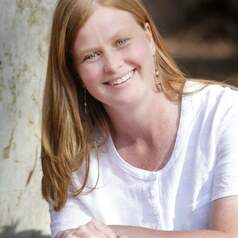
Angelika Loots
Postdoctoral Fellow, University of Pretoria
I obtained my PhD in Veterinary Tropical diseases in 2018 and am currently a Postdoctoral Fellow at the University of Pretoria responsible for the development and evaluation of novel diagnostic assays to diagnose various diseases of Veterinary Importance. I have a keen interest in the One Health approach of research and recognise the importance of human, animal, insect, plant and environmental interactions
Less ![]()
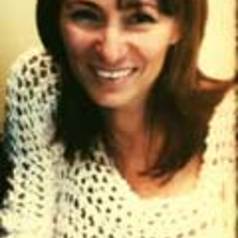
Angelina Russo
Angelina Russo is the inaugural Professor of Cultural Practice in the Faculty of Arts and Design at the University of Canberra. Her research focuses on explorations in the changing media landscape and their applications to cultural communication. She is a co-founder and Director of Museum3 (www.museum3.net) and in her spare time, runs a tiny micro-business where she designs and hand-manufactures high visibility knit cyclewear (www.culturecycle.org)
Less ![]()

Angelina Ying Chen
PhD student , University of Sydney
Angelina is passionate about human and AI futures. Her research focuses on exploring how the fundamental qualities of humanity like empathy, compassion and creativity are challenged and redefined amid an evolving AI landscape. As AI continues to advance in complexity and personification, it initiates conversations about how we maintain a sense of identity and fulfilment in an increasingly AI-intertwined world.
Currently, she is researching Artificial Empathy and Creativity, as well as exploring the societal and ethical tensions these emerging phenomena present. Through her PhD study at the University of Sydney, Angelina aims to explore these intricate issues and why it is important to maintain a strong ethical compass as we navigate the ever-changing terrain of human-AI interaction.
Less ![]()

Angeline Close Scheinbaum
Dan Duncan Endowed Professor of Sports Marketing.Associate Professor of Marketing, Clemson University
Dr. Angeline Close Scheinbaum (Ph.D., The University of Georgia) is a scholar of consumer behavior, integrated brand promotion, and sponsorship/experiential marketing in sectors of sports and social media/online consumer behavior. Her research is often based in industry experience in sports marketing with event sponsors such as Dodge, Ford, VW, Toyota, Shell, Lexus, Suzuki, Mazda, USA Cycling, and AT&T. Professor Scheinbaum is an author or editor of books including: Advertising & Integrated Brand Promotion, Consumer Behavior Knowledge for Effective Sports & Event Marketing, Online Consumer Behavior: Theory & Research in Social Media, Advertising & E-Tail, and The Dark Side of Social Media: A Consumer Psychology Perspective. Dr. Scheinbaum publishes in rigorous journals and her research has earned awards including the American Marketing Association Sports SIG Paper of the Year and The Academy of Marketing Science’s M. Wayne Delozier Best Conference Paper Award. She has experience mentoring and publishing with doctoral students. She serves on the Editorial Review Boards for Journal of the Academy of Marketing Science, Journal of Advertising, Journal of Advertising Research, and Journal of Business Research and as a reviewer for Journal of Marketing and Journal of Consumer Research. She served the American Marketing Association as Chair of CBSIG, served the Academy of Marketing Science in elected and appointed roles and is a member of the Association for Consumer Research, Sport Marketing Association, and American Academy of Advertising. Prior to Clemson, she served as Associate Director of Research for the Center for Sports Communication & Media at The University of Texas at Austin.
Less ![]()

Angelines Donastorg Sosa
Assistant Lecturer in Renewable Energy & Energy Management, Coventry University
I am a Lecturer in renewable energy and management (Research & Teaching). I am very passionate about helping new generation understand and innovate how to transition the energy sector systems and strategies to a more sustainable and renewable approach. This is why we need more graduates with the knowledge and practice to implement such sustainable solutions.
My main research focus is on smart energy systems and digital energy transitioning tools. I have been involved in several energy topics such as smart local energy systems and transitioning energy systems towards renewable sources. I have work several projects international smart energy system projects such as MaSS4EU, Optimum and locally as well such as Oxfordshire LEO project.
Less ![]()
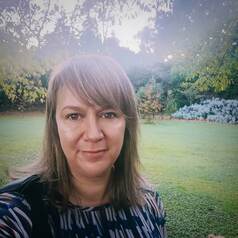
Angelique Reweti
Senior Lecturer in Public Health, Massey University
Angelique Reweti's (Ngāpuhi) primary focus is on teaching and researching in the field of Public Health and Hauora Māori. Holding a PhD and a Bachelor of Health Sciences (Hons), her academic and professional journey is anchored in the exploration of how whānau and community-based initiatives can improve Māori health outcomes. In a world where discussions around Māori health often dwell on deficits, she is determined to steer the conversation towards empowerment, resilience, and the inherent strengths within Māori communities. Her approach is not merely about changing the narrative; it's about creating environments where the wellbeing of whānau and communities is celebrated and nurtured.
Less ![]()
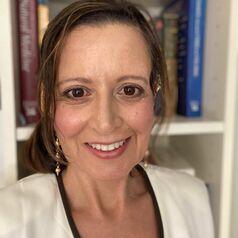
Angelique Nadia Sweetman McInnes
Academic in Financial Planning, CQUniversity Australia
My collection of seven qualifications were earned beginning in the late-1980s starting with a Bachelor of Commerce degree (Business Economics and Economics majors), followed by a Bachelor of Commerce Honours (Economics and Finance majors) degree graduating from Nelson Mandela Metropolitan University in South Africa.
After emigrating to New Zealand in July 1994, I completed a Graduate Diploma in Management (Human Resources Management major) at the University of Canterbury and a few years later a Master of Commerce and Management (Financial Management) at Lincoln University.
The Masters by research topic was “Working Capital Management: Theory and New Zealand Empirical evidence” and I graduated in 2002. Then in 2007 the McInnes clan of three primary school age children, my husband and me decided it was time to move to Brisbane, Australia. Needing another career change I completed the Diploma in Financial Services (Financial Planning) with Kaplan Professional, and the Advanced Diploma in Financial Services (Financial Planning) with AMP Horizon Academy and Pinnacle. By 2014 I saw an opportunity to contribute to the Australian Financial Advisory sector and started a PHD with research topic: “Legitimacy of the ‘Authorised Representative’ Licensing Model of Individual Financial Advisers: Theory and Australian Empirical Evidence”.
I completed the PHD in 2018, and I am happy to report it has been helpful in furthering the professionalisation of financial advisers in Australia.
Less ![]()
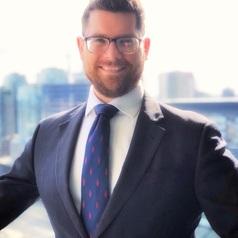
Angelo Capuano
Law Lecturer, CQUniversity Australia
Dr Angelo Capuano is a law lecturer at Central Queensland University. His research interests include labour law and the future of work. Angelo's publications include analysis of the legal implications of hybrid work and the use of technology in employment (artificial intelligence, algorithms and social media). He has a particular interest in workplace issues relating to social origin, class and disability. Angelo is the author of 'Class and Social Background Discrimination in the Modern Workplace: Mapping Inequality in the Digital Age', which was published by Bristol University Press in 2023. Outside of academia, Angelo has spent a number of years working as a government lawyer, court researcher and judge's associate.
Less ![]()
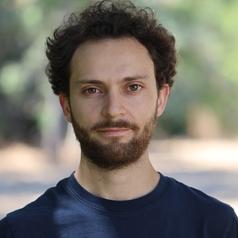
Angelo Carlino
Postdoctoral Fellow, Carnegie Science
I am a postdoctoral fellow in the Climate Energy Lab at the Carnegie Institution for Science at Stanford, USA, since April 2023. I am currently working on decision-making under uncertainty for technological innovation and energy system modeling. I earned my BSc and MSc in Environmental Engineering from Politecnico di Milano where I also obtained my PhD in Information Technology in 2022 in the Environmental Intelligence Lab. In 2021, I participated in the Young Scientist Summer Program at IIASA. From June 2022 to March 2023, I was a visiting postdoctoral scholar at the Natural Capital Project at Stanford University.
Less ![]()
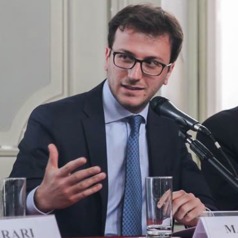
Angelo Martelli
Angelo Martelli is a Ph.D. Candidate in Political Economy in the European Institute at LSE, where he also works as Research Assistant and Graduate Teaching Assistant in the Economics Department. Before joining the LSE he pursued graduate studies at Pompeu Fabra University (MSc and Master of Advanced Studies in Economics) and completed a Bachelor’s degree in International Economics and Management at Bocconi University. His research is in applied labour economics, in particular his PhD work examines the evolution of employment structures in Europe over the last three decades, looking in particular at the role of labour market institutions and reforms on job and wage polarization. At the LSE he is the President of the Italian Society and since 2009 has served in the Advisory Board of the MILMUN Association in Milan. Angelo has published articles in major newspapers such as The Wall Street Journal, wrote for influential blogs and was interviewed and quoted in media outlets such as The Guardian, Handelsblatt Global Edition, The Times Higher Education, La Repubblica, RAI.
Less ![]()
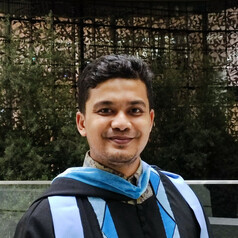
Anggi Azzuhri
PhD candidate, Universitas Islam Internasional Indonesia (UIII)
I am a PhD in Islamic Studies candidate at Universitas Islam Internasional Indonesia. My research interests are Islamic Jurisprudence and Legal theory, Contemporary Islamic Philosophy, Applied Ethics, and Policy Studies.
Less ![]()
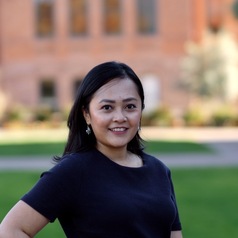
Angguntari Ceria Sari
Lecturer in International Relations, Universitas Katolik Parahyangan
Anggun is a permanent lecturer at the Department of International Relations, Universitas Katolik Parahyangan. She received her PhD in Political Science from Arizona State University, where she was a Fulbright scholar from 2016 until 2019) . She earned her Bachelor’s degree in Political Science from Universitas Katolik Parahyangan and a Master’s degree in International Relations from the School of Rajaratnam of International Studies, Nanyang Technological University, Singapore, where she also worked as a research assistant at the Indonesia Program.
Her research interests lie in the foreign security policy of Indonesia, the role of multilateral regional institutions in spreading democratic norms, and the foreign policy of middle powers. She is particularly interested in exploring the relationship between domestic and international factors in shaping states’ foreign policy, and the effect of international relations on domestic political processes. Her writings have appeared in The Thammasat Review, Jakarta Post, CNN, and Asia Times, Diplomat, Journal of Contemporary Southeast Asia, and Asian Journal of Comparative Politics.
Less ![]()
- Market Data





















